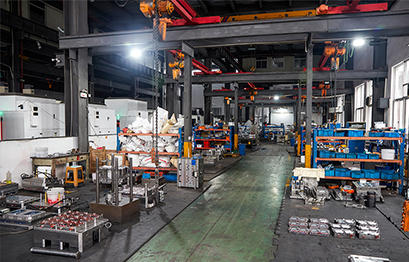Understanding the Role and Impact of Plastic Injection Mould Manufacturers
In the world of manufacturing, plastic injection moulding stands out as one of the widely used and versatile processes. This method is pivotal for producing high-quality plastic parts used in a range of industries, from automotive to consumer goods. At the heart of this process lies the plastic injection mould manufacturer—a critical player in ensuring the efficiency and precision of production. Understanding the importance of these manufacturers and the fundamentals of plastic injection moulding can offer insights into how everyday products are made and why this industry is essential.
Importance of Plastic Injection Mould Manufacturers
Plastic injection mould manufacturers play a crucial role in the production process of plastic components. These manufacturers are responsible for creating the moulds used to shape the plastic into specific parts. The moulds are often complex, requiring precise engineering and design to meet exact specifications. This precision ensures that the final products are consistent and meet quality standards.
One of the primary responsibilities of these Plastic Injection Mould Manufacturers is to provide high-quality moulds that can withstand the pressures of the injection process. Moulds must be durable, resistant to wear and tear, and capable of producing parts with tight tolerances. A well-made mould can significantly reduce the number of defects and the need for post-production adjustments, bring about cost savings and increased efficiency.
Additionally, plastic injection mould manufacturers contribute to the innovation and customization of products. They work closely with clients to design and develop moulds that meet specific needs, whether for a unique part or a high-volume production run. This ability to tailor solutions is vital for industries that demand both high precision and flexibility.
Furthermore, these Plastic Injection Mould Manufacturers often engage in ongoing research and development to improve moulding technologies. Innovations in materials, design, and manufacturing techniques can bring about more efficient production processes, better product quality, and reduced environmental impact. By staying at the forefront of these advancements, mould manufacturers help their clients stay competitive in a rapidly evolving market.
Basic Information About Plastic Injection Moulding
Plastic injection moulding is a manufacturing process used to produce a wide range of plastic products. The process involves injecting molten plastic material into a mould cavity, where it cools and solidifies to form the desired shape. This method is favored for its ability to produce complex and precise components efficiently.
The process begins with the creation of a plastic mould Supplier, which is a critical component of plastic injection moulding. The mould is typically made from metal and consists of two main parts: the core and the cavity. The core is the part of the mould that shapes the inside of the plastic part, while the cavity shapes the outside. The Plastic Injection Mould Supplier is designed to withstand high pressure and temperature during the injection process.
Once the mould is prepared, plastic pellets are fed into an injection machine, where they are heated until they become molten. The molten plastic is then injected into the plastic mould Supplier under high pressure. The pressure ensures that the plastic fills all the intricate details of the plastic mould Supplier. After the plastic has cooled and solidified, the mould is opened, and the finished part is ejected.
One of the advantages of plastic injection moulding is its ability to produce parts with high dimensional accuracy and repeatability. This is particularly important for industries that require consistent quality, such as automotive or medical device manufacturing. Additionally, the process allows for the use of various plastic materials, including thermoplastics and thermosetting plastics, each offering different properties suitable for specific applications.
Another benefit of plastic injection moulding is its efficiency in high-volume production runs. Once the initial mould is created, it can be used to produce thousands or even millions of parts with minimal variation. This scalability makes it an ideal choice for mass production, where maintaining uniformity and reducing production costs are essential.




 English
English Español
Español عربى
عربى



























